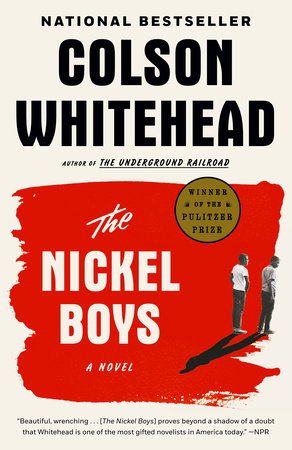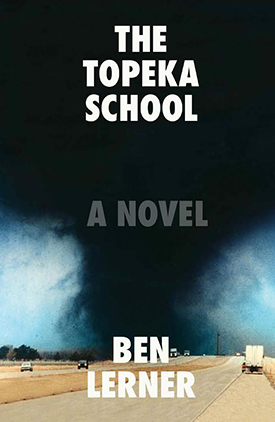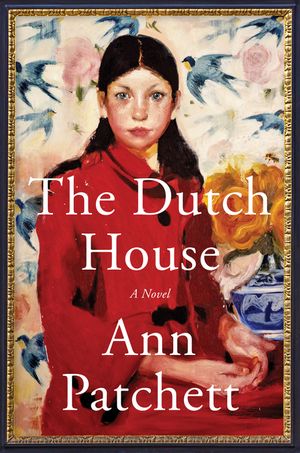The Pulitzer Prize for Fiction 2020: Great American Novels, Black Lives Matter, archetypes and stereotypes
The almost proverbial longtime obsession that American writers have always shown to have for writing the “Great American Novel” (an expression canonised by Philip Roth’s The Great American Novel) seems to have found its perfect embodiment in the finalist trio of this year’s Pulitzer Prize for Fiction.
Let’s be honest: not all past Pulitzer winners — let alone just finalists — have managed to contribute to the history of American literature, but this year, the year of Apocalypse apparently, our judges have provided us with a remarkable specimen of thriving American fictional prose.
The victory of The Nickel Boys, by Colson Whitehead (for the second time awarded with the prize, after his triumph in 2017 with The Underground Railroad) could not be more timely: only 21 days before the murder of George Floyd, which initiated the ongoing history-changing wave of protests of the Black Lives Matter movement, on May 4th 2020, a novel whose story revolves around white violence against black boys in an American reformatory, deservedly won the Pulitzer Prize. A prophecy? A foreshadow of things to come? Or perhaps just a signal, a symptom of the growing need for awareness on a social — and ultimately historical — issue that had been simmering just beneath the surface for way too long.
This is not simply an honest, profound, and well-timed novel on the condition of black people in the US. It is — I will be excused the redundancy from now on — a Great American Novel.
I quote from the Wikipedia page for GAN: “The term Great American Novel (GAN) refers to a canonical novel that is thought to capture the spirit of American life. It is generally regarded as being written by an American and dealing in some way with the question of America’s national character. The Great American Novel is considered America’s equivalent of the national epic.”

The Nickel Boys, though not canonically “epic” with its 215 pages, does indeed capture in a robust way the spirit of contemporary American life. Despite the fictional character of this novel, older and recent history has proved that the events narrated in Whitehead’s last book — the brutality of the violent and multiform abuse against (even young) black people — are facts that permeate everyday American (and not only) society and corrode its foundations. The question of black lives is, therefore, a question of America’s national character, and Whitehead’s powerful writing immortalises it in a way that few other writers (and I’m thinking of Toni Morrison above all) have been able to do so far: this is a profoundly personal, single, individual story that has the strength to turn itself into the archetype of a universal human condition of suffering, abuse, violence, and discrimination. Creating archetypes is indeed what good writing should normally bet able to do, whereas mediocre writing fills its pages with fragile and dull stereotypes. This is why, if one of the two winners of the Man Booker Prize 2019, Girl, Woman, Other, by Bernardine Evaristo, merely offers us a rather banal tracking shot of poorly written cliches (stereotypes, precisely!) on black women (and does not, therefore, portray a reality a reader can fully grasp), Whitehead, on the contrary, creates a fictional world that, in its uniqueness, makes the real world aware of its flaws, and resonates with archetypical strength. This is how it becomes epic too, and most resolutely deserves the title of Great American Novel.
What further enriches the literary scenario of this year’s Pulitzer Prize is the incontestable truth that the other two contenders also notably had all the characteristics of great American novels.

The Topeka School, by Ben Lerner, is a refined and sophisticated novel depicting a certain bourgeois cross-section of American society: the protagonists are a family of psychotherapists, whose young son is a champion of public debate. The narration is polyphonic not only thanks to the multitude of voices (mother, father, son), but also to the author’s choice of alternating the first and third-person speech. The narrative technique is wise, as the secretly hidden story of a boy called Darren — that touches tangentially yet significantly the lives of the protagonists — unwinds throughout the chapters without being ever explicitly told. This is potentially a great American novel, not only because it is beautifully written and masterfully orchestrated, but also because it tackles tactfully a number of hot themes of contemporary American society. Public speech and eloquence — persuasion and its danger —, above all, feminism, mental health and psychotherapy, but also and quite remarkably the critical role of education. This pastiche of themes could have easily risked creating yet another collection of stereotypical cliches, but Ben Lerner appears to know better than this, and chooses to give his novel a vigorous framework within which these problems interact naturally and vividly, and therefore can aim at universality.

Finally, we have The Dutch House, by Ann Patchett, perhaps the most traditional of the three novels: a family saga. The plot, somehow a modern and harsh rewriting of the fairytale of Cinderella, is that of two siblings (a brother and a sister, of whom the brother narrates the story), who are, on the one hand, the victims of the tragic destiny of their family (abandoned by their mother, kicked out from their family house by the second wife of their late father), and, on the other hand, the victims of their own violent obsession for the Dutch House. The house is the sumptuous place where they grew up — the materialisation of their father’s American dream, the dream of an ambitious and stubborn man, decided to substantiate his scaling of the social ladder through the possession of a dream house, the same house that will lead his wife to folly and escape.
The obsession of the two protagonists for the house will accompany them until old age and death, and will be inherited by future generations. If the plot is fundamentally simple, the feeling it conveys is undoubtedly epic: a blind, insistent, stubborn search for the evidence of the actuality of the past; a desperate chase of roots; a morbid yet rational attachment to the material possession — the house — which provided those roots; the physical and tangible component of memory.
By narrating these sentiments, universal yet so strongly connotated as typically American (isn’t in the big house, after all, the American dream?), Ann Patchett builds an epic novel, whose emotional strength is at times excruciating, whose simplicity describes folly, torment, resignation, family love, and a vast plethora of human emotions and actions. This is, in sum, a great (and in this case also traditional, though universal) American novel.
Ultimately, the Pulitzer Prize for Fiction 2020 amazes for its foresight and for the brilliance of choices, but most remarkably teaches how literature, at times, precedes history, how the big human and social questions often surface on the written page before action takes place. How great American novels (and hopefully great universal novels) can be a driving force to action and thought.





1 Comment
Wonderful reviews!